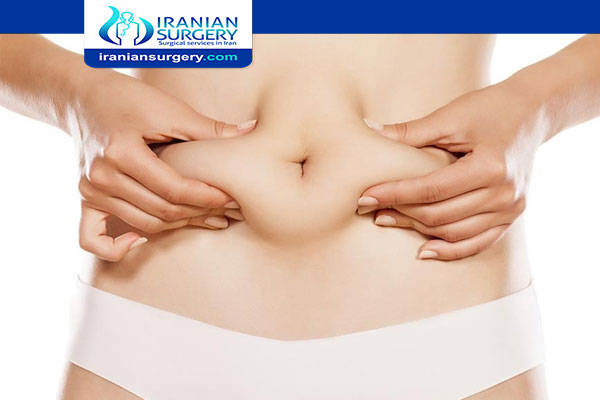What I Should Know Before Getting Liposuction
Liposuction removes body fat deposits that are resistant to diet and exercise. It is one of the most common cosmetic surgical procedures in the world. People choose liposuction to reshape and contour the hips, legs, abdomen, buttocks, back, neck, face, arms and breasts. Get the facts on liposuction so you can go in with realistic expectations.
Liposuction Works Best on People Who Have Firm, Elastic Skin
In general, liposuction is for adults who are within 30% of their ideal body weight. For the best results, you need to have firm, elastic skin and good muscle tone. It’s also vital that you don’t smoke. Your doctor will want to make sure you have realistic expectations for your body’s appearance after liposuction. This will promote a greater level of satisfaction with the results.
Liposuction Often Uses Ultrasound and Laser Technology
Traditional liposuction—or tumescent liposuction—involves several small incisions. Your doctor uses a hollow tube and pumps it back and forth to dislodge the fat deposits. A surgical vacuum removes the fat. Newer types of liposuction include ultrasound-assisted and laser-assisted techniques. They also use small incisions and a surgical vacuum. The difference lies in the way they dislodge the
Liposuction Is Not a Weight Loss Procedure
In most cases, liposuction is a cosmetic procedure that improves the appearance of a body area. The goal is to reshape or contour a body area by removing fat deposits. Liposuction is not a weight loss procedure, so you should not expect to lose weight afterwards. In fact, maintaining a healthy weight is vital for long-lasting results. Liposuction is also not a treatment for cellulite. Talk to your doctor about other treatments if cellulite removal is your goal.
Liposuction Has Risks Like Any Other Surgical Procedure
In the hands of a skilled doctor, liposuction is generally a very safe procedure. Like any procedure, there are risks. These include scarring and skin discoloration, dimpling and bagginess. If you are considering liposuction, be sure to find a board-certified plastic surgeon, dermatologist, or general surgeon with plenty of experience.
You’ll Have Pain and Bruising After Liposuction
During surgery, you will have general or regional anesthesia. Doctors often inject a local anesthetic into the liposuction area as well. This will gradually wear off after surgery and you may feel discomfort or mild pain. You may also have bruising in the area. These symptoms often subside within a few days. Your doctor can recommend a pain reliever.
Read more about : Liposuction – Local vs. General Anesthesia
You’ll Need to Limit Your Activities for a Few Weeks
In most cases, you can return to work and daily activities within a few days. For the first couple of weeks, your doctor may advise you to avoid strenuous activities and sports. The swelling from liposuction takes the longest to resolve. You may continue to see swelling decrease and subtle changes occurring in the liposuction area for several weeks. It can take several months for the swelling to fully resolve so you can see the full results of your liposuction.
You Have Alternatives to Liposuction
There are nonsurgical options for body contouring. These include using radio waves, ultrasound, lasers, and exposure to cold to remove fat. These techniques may be viable alternatives for some people. However, they can’t replicate the results from surgery to remove fat. Talk to your doctor about all your treatment options and find out which one is best for you.
Source:
https://www.healthgrades.com/right-care/liposuction/8-things-to-know-about-liposuction
- Liposuction
- Liposuction in Iran
- Liposuction cost in Iran
- Lipomatic in Iran
- Vaser Liposuction in Iran
- Before Liposuction in Iran
- Liposuction Before and After
- Liposuction Recovery
- Risks of Liposuction
- How dangerous is Liposuction
- Long-term effects of Liposuction
- After Liposuction surgery in Iran immediately
- During Liposuction surgery in Iran
- Who is not right candidate for Liposuction surgery?
- Ideal BMI for Liposuction
- Can Liposuction and tummy tuck be done together?
- How much fat can Liposuction remove
- Fat transfer in Iran
- Full Body Liposuction in Iran
- Mega Liposuction in Iran
- 10 Important things you should know before Liposuction
- Lipo laser in Iran
- 12 Important things about Liposuction
- Liposuction pain management
- Plastic surgery in Iran
- Rhinoplasty
- Face lift
- Facial plastic surgery
- Lip augmentation
- Ear pinning
- Blepharoplasty
- Neck lift surgery
- Chin lift surgery
- Liposuction
- Abdominoplasty (tummy tuck)
- Body sculpting
- Arm Lift
- Brazilian Butt Lift
- Breast Augmentation
- Breast Lift
- Breast implant
- male breast reduction ( gynecomastia )
- sex reassignment surgery ( sex change )
- Vaginoplasty
- labiaplasty
- Hair transplant for male
- Female hair transplant
- Reconstructive surgery
- Septoplasty
- Breast reconstruction
- Breast reduction
- Cleft lip and palate repair


